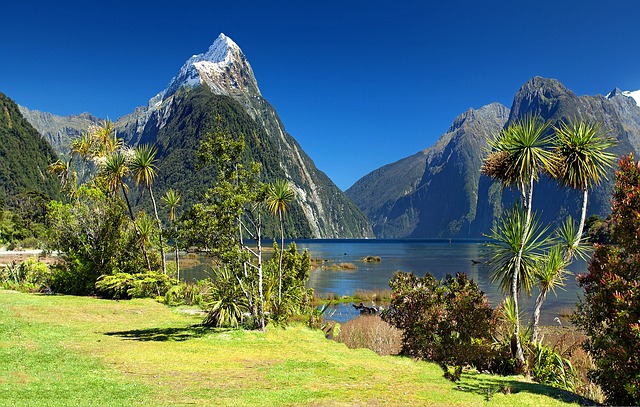This Content Is Only For Subscribers
Murihiku Southland residents are firmly behind tourism, with 93 per cent saying they’ve personally benefitted from it and are keen to see the industry continue to thrive in a way that works for local communities.
That’s the key message from Views on Tourism: Great South 2025, the latest community sentiment report released by regional development agency Great South.
Great South destination development manager Amie Young says the report, which had been conducted by independent research company Angus and Associates, painted a clear picture: Southlanders valued tourism’s contribution to jobs, local business and cultural vibrancy, but they are concerned about its pressures on infrastructure, the environment and local communities.
“Southlanders are proud to share their backyard, but they want tourism to be done right,” she says.
“This report gives us a roadmap to ensure tourism continues to be a positive force, one that supports communities and protects what makes this place so special.”
Importantly, 93 per cent of locals say they’ve personally benefitted from tourism, well above the national average of 82 per cent. The top benefits cited by residents include increased employment opportunities, support for local businesses, and a stronger sense of regional identity.
Tourism Approval Rating measures how positively residents view the impacts of tourism in their region, using a score from -100 to +100, where anything below zero signals disapproval. Murihiku Southland’s overall TAR score of 47 shows the community accepts tourism, closely matching the international TAR score of 48, which is also the national average.
Residents view domestic tourism more favourably, with a TAR of 64 – well above the national average of 58, which indicates strong approval of domestic tourism in the region
While many Southlanders saw the benefits of tourism, they were also aware of the challenges it could bring. 83 per cent of respondents noted areas where tourism was putting pressure on communities, slightly higher than the national average of 72 per cent.
The most common concerns raised were around litter and waste, road safety, and impacts on the environment.
Fiordland residents, who experience significant visitor activity, reported both the highest levels of benefit and the most concern, reflecting the need for thoughtful, place-based management in high demand areas.
“We’re seeing strong local support for tourism, but equally strong expectations around how it’s managed,” says Amie.
“Southlanders are calling for investment in the things that matter; safer roads, better waste systems, housing that locals can afford and protection of our natural spaces.”
When asked what could be done to address tourism related pressures, residents put forward a wide range of practical, community focused solutions. To improve road safety, locals wanted to see better infrastructure and signage, stricter rental vehicle rules and stronger enforcement of driving regulations. Waste and environmental concerns could be addressed by upgrading recycling systems, introducing or enforcing littering fines and tightening freedom camping rules.
Looking ahead, 38 per cent of respondents believed the tourism industry should prioritise investment in community infrastructure, while 28 per cent wanted to see a focus on creating more local employment opportunities.
“Southlanders see real value in tourism and want to build on that in a way that enhances our region,” says Amie.
“This is about planning for the future by growing tourism in a way that supports our communities, protects what makes Southland special and ensures everyone benefits.”
Views on Tourism: Great South 2025 is part of Great South’s commitment to monitoring tourism sentiment across the region. The research helps inform policy, destination planning, and community engagement to ensure tourism growth aligns with local aspirations.



